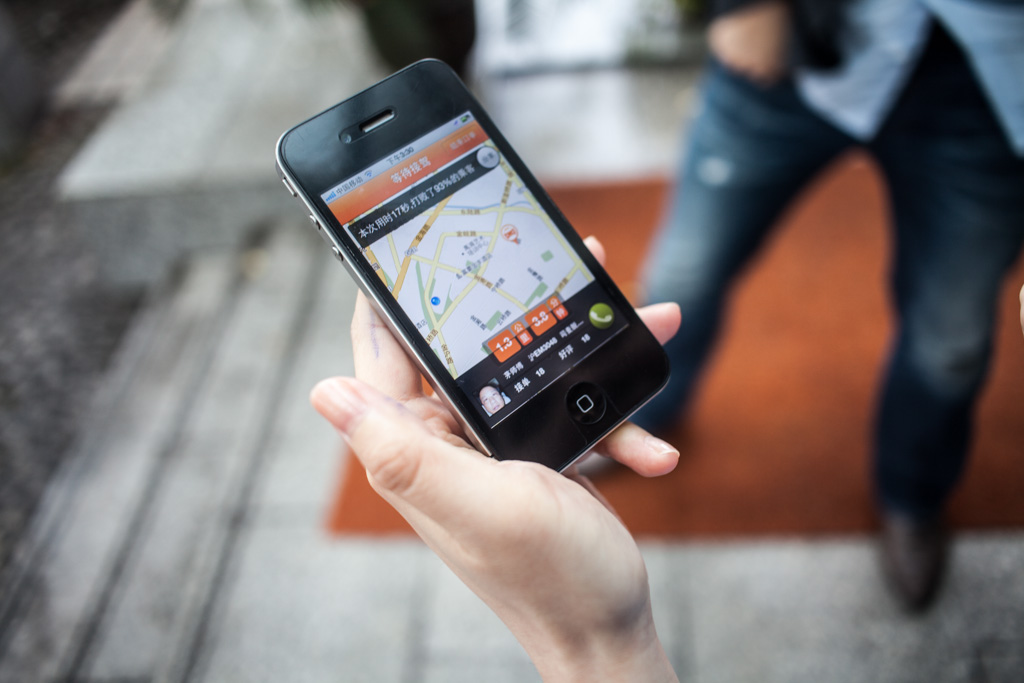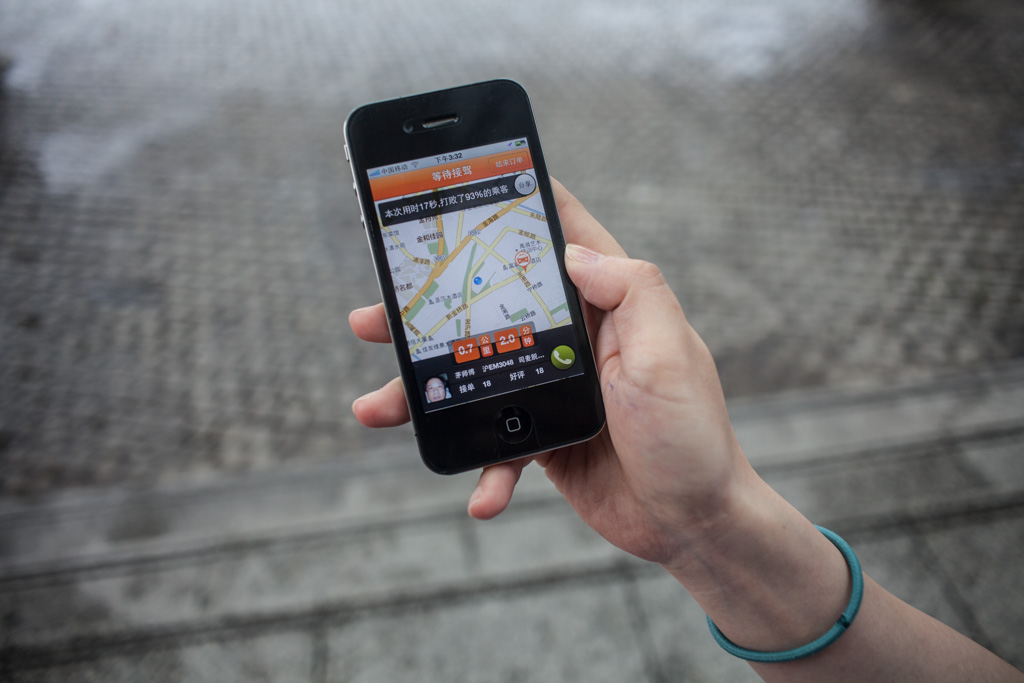Private car companies such as Uber provide a tiered service: the black limo provides a superior service at a higher cost than Uberx or regular taxis; and Uber charges more at peak times. One of the assumptions as a customer is that the rules of the marketplace are baked into the service itself and transparent to all. At the times when there’s nary a car to be found, what if you could bribe or otherwise incentivise the driver to ignore the set rules of the market and choose you over other would-be passengers?
In China you can.
The Didi Dache find-taxi app (嘀嘀打车-打车神器, shown) provides subtle but important feature compared to private car services such as Uber: you can say in advance where you want to go and offer an additional incentive the driver to pick you up. This assumption around price flexibility is inherent in many transactions in China from street markets to buying household electronics. In fact one of the many reasons why Best Buy struggled in China is that their core “price matching” meant little to local consumers: in China the advertised price is often merely the starting price, with the assumption that everything is negotiable. (The Best Buy brand disappeared from China, but it still operates locally under the Five Star Appliance brand which it bought in 2009).
Finding strategies to sway the dynamics of the market and find a ride are prevalent in offline transactions. In most cities taxis can be reluctant to take passengers that are not going in the “right” direction, if for example they are about to clock off shift or don’t want to be snarled in traffic and after stopping drivers can express reluctance to go to a particular destination which puts more social pressure on the passenger to tip well if they do take the ride. At the end of the journey taxi drivers can further induce a bribe by handing blank taxi receipts to the customer with the implicit assumption that they will tip high, and can claim even higher on their company expense claim.
Many countries have social norms to sway the market place for services like taxis during peak times. Friday night’s in Seoul during the boom years, when the salaried workers were out in force, holding up 2 or 3 fingers as the taxi goes past is offering two or three times the meter rate.
Back to China — during the negotiation phase where neither party has yet committed to the transaction, when cars are scarse and there are a lot of waiting passengers (which is obvious in the design of the system), anecdotal evidence suggests that the driver is incentivised to drive in the opposite direction to the would-be ride to increase the pressure to raise that incentive. For every market a negotiation strategy.
This to and fro between the driver and the would-be passenger highlights the subtle shifts in power as transactions shift online. But as in most countries the real power in this equation lies with the Municipal Government that set the rules of the marketplace — the governments of Beijing, Shanghai andShenzhen have already moved to restrict use of the app, not least because it undermines their ability to control the market for taxi permits.As with innovation, everyday bribery doesn’t exist in a vacuum but needs to work in a wider context.

